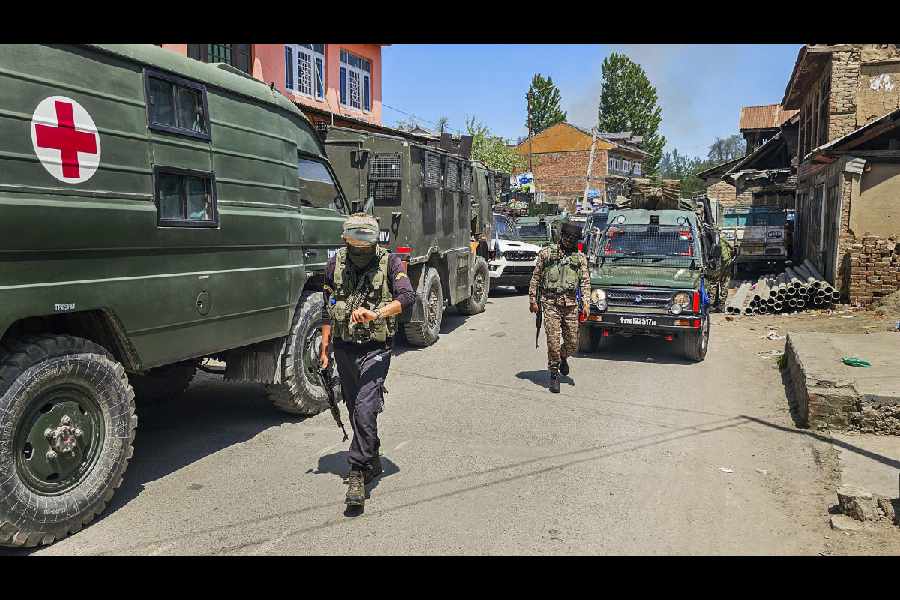An order by the High Court of Jammu & Kashmir and Ladakh quashing a government communication denying work to contractors related to former militants seems to have posed a new legal challenge to home minister Amit Shah’s latest hard line on militancy.
Shah was quoted by PTI on Monday as saying that no person would land a government job in Jammu and Kashmir if his kin joined militancy or was involved in stone pelting.
The announcement came after Friday’s landmark verdict by the high court that quashed a communication by the rural development department that barred contractors whose kin were linked to militancy in the past.
Shah claimed some human rights activists had gone to the Supreme Court against the decision, but the government had prevailed. It is the first time that any top government functionary has gone public with the decision, although official sources here said the order was already under implementation.
Shah was also quoted by PTI as saying the government would make an exception in case someone came forward and informed the authorities that his or her close relative had joined a militant outfit.
The courts in Jammu and Kashmir, however, are hearing some petitions challenging the decision.
Justice Sanjeev Kumar on Friday came down hard on the commissioner secretary in the rural development and panchayati raj department over an order issued last year whereby 345 contractors were barred from participating in tenders as their kin were involved in militancy in the past. Some of them had challenged the order.
The judge not only asked the authorities to permit the eligible petitioners to participate in the tender process but also said the court could not remain a mute spectator to such a “blatant violation of fundamental rights ofthe citizens”.
The judge has asked the chief secretary to initiate departmental action against the concerned commissioner/secretary.
“The impugned communication issued by the then commissioner/secretary to government rural development department and panchayati raj is a clear onslaught on the well thought after and wise decisions taken by the government to bring peace and normalcy in the thenstate of Jammu and Kashmir, now Union Territory of Jammu and Kashmir,” the court said.
“I have not been able to discern the thought process (allowing order). Was it intended to make the petitioners starve or take up activities prohibited by law? They were debarred from executing works of the rural development department on a flimsy ground that their uncle or even father’s uncle 10-20 years back were involved in anti-nationalactivities.”
The judge said the CID report showed most of the relatives of the petitioners (contractors) have either died or surrendered to make a new beginning as law-abiding citizens of this country.
The judge said the Jammu and Kashmir government had in the past promulgated rehabilitation policies even for ex-militants/surrendered militants, referring to a 2010 order which laid down the policy and procedure for the return of ex-militants (Kashmiri militants living in Pakistan).
Though the latest judgment related to people whose kin had past militant links, High Court Bar Association senior office-bearerGhulam Nabi Shaheen said it had offered hope to even those whose kin had active militancy links.
“The law is clear that you can’t deprive a man or woman of his rights guaranteed by the Constitution whether their kin have past or active links with militancy. There are a lot of people who were deprived of the privileges. Now there is hope for them,” Shaheen told The Telegraph.










